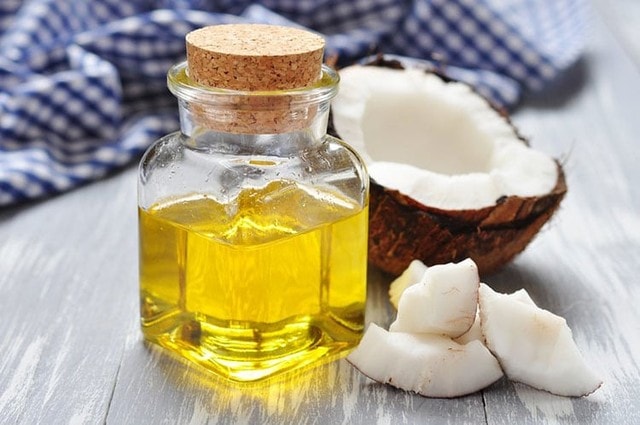Coconut oil helps detoxify the liver?
Coconut oil is said to improve skin, lower cholesterol, boost immune health, oral health, and metabolism, and promote liver health. However, many people are skeptical about the fat in coconut oil.
1. Coconut oil is derived from the pulp of the coconut, there are two main types of coconut oil:
Virgin coconut oil is extracted from fresh mature coconuts without using high temperatures or chemicals.
Refined coconut oil is made from dried coconut meat that is often bleached and deodorized with chemicals and has a reduced coconut flavor.
Refined coconut oil may be partially hydrogenated. Hydrogenation is the process of heating the oil and passing hydrogen bubbles through it to increase the density of the oil. Partial hydrogenation creates trans fats, which are known to cause high cholesterol and increase the risk of heart disease. Partial hydrogenation also destroys many of the good fatty acids, antioxidants, and other active ingredients found in virgin coconut oil.
2. Fat content of coconut oil

Virgin coconut oil is 92% saturated fat—the highest percentage of saturated fat of any fat. Saturated fat tends to:
Solid at room temperature. Found in animal products. Contains cholesterol.
However, the saturated fat in coconut oil is different from most fats because it contains a unique blend of short- and medium-chain fatty acids. Medium-chain fatty acids have an unusual chemical structure that allows the body to digest them easily. Most fats are broken down in the intestines, metabolized, and transported into the bloodstream. Medium-chain fatty acids, on the other hand, are absorbed intact and transported to the liver, where they are used directly for energy.
Coconut oil also contains higher levels of lauric acid than other fats. Lauric acid may play a role in the oil's ability to raise blood levels of HDL cholesterol, the good cholesterol for your heart.
3. Is coconut oil good for the liver?
Various claims have been made about the benefits of virgin coconut oil. Experts believe that the presence of medium-chain fatty acids helps prevent liver disease because they are easily converted into energy when they reach the liver. This benefits the liver in two ways:
Converting fatty acids into energy reduces the workload of the liver. By converting them into energy instead of entering the blood, fat accumulation in the liver is prevented.
Additionally, coconut oil has been noted to have antiviral, antibacterial, and antifungal properties. Some scholars suspect that the antibacterial properties of coconut oil help kill bacteria and reduce free radical formation in the liver.
According to an animal study published in the May 2014 issue of the Journal of Basic and Clinical Physiology and Pharmacology, the active components of coconut oil have a protective effect against liver toxicity.
In another animal study published in the 2011 issue of Evidence-Based Complementary and Alternative Medicine, researchers found that virgin coconut oil protected the liver from damage commonly caused by paracetamol (a liver toxin).
4. Recommendations about coconut oil
The claims that coconut oil is good for liver health are questionable because it is saturated fat – a known contributor to heart disease. There is credible evidence that the link between saturated fat and heart disease may not be as strong as previously thought, but the USDA Dietary Guidelines recommend avoiding saturated fat, including tropical oils like coconut.
There is certainly some controversy, as many experts disagree on the potential positive and negative effects of the medium-chain fatty acids in coconut oil. However, most agree that as long as it is used in moderation, coconut oil is a good cooking ingredient. According to New York University Langone Medical Center, people can safely replace up to 50% of the fat in their diet with coconut oil.
However, it is important to include other types of fats in the diet because medium-chain fatty acids do not contain the essential fatty acids needed for good health.
Coconut oil is generally safe in moderation, except for those who are allergic to coconuts. Some people may experience nausea and stomach upset when they first start using coconut oil.
According to Dr. Nguyen Thanh Ha - Department of Nutrition and Dietetics - Central Lung Hospital: Saturated fat, when used properly and in moderate doses, will help absorb nutrients, promote metabolism and suppress appetite. The ability of saturated fat to affect health also depends on many other factors such as dosage, existing chronic diseases... and only the recommended amount of saturated fat should be consumed because if consumed too much, it will increase LDL cholesterol, which is harmful to health./.


